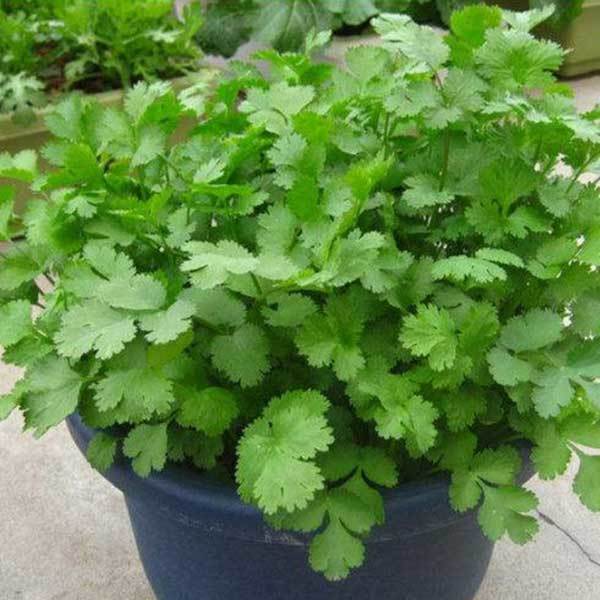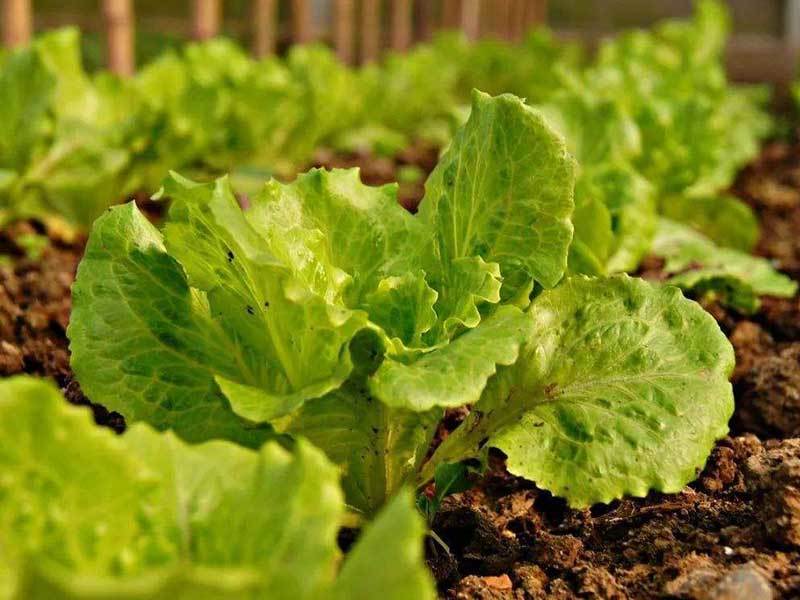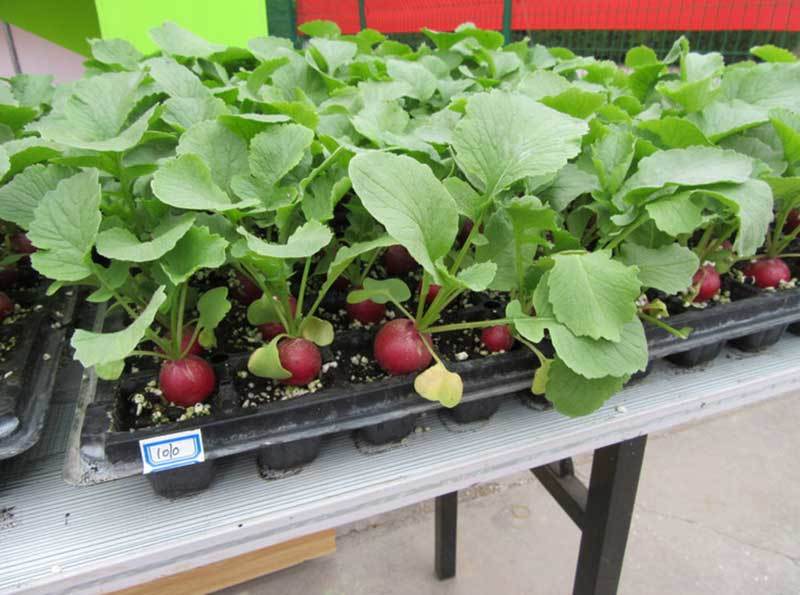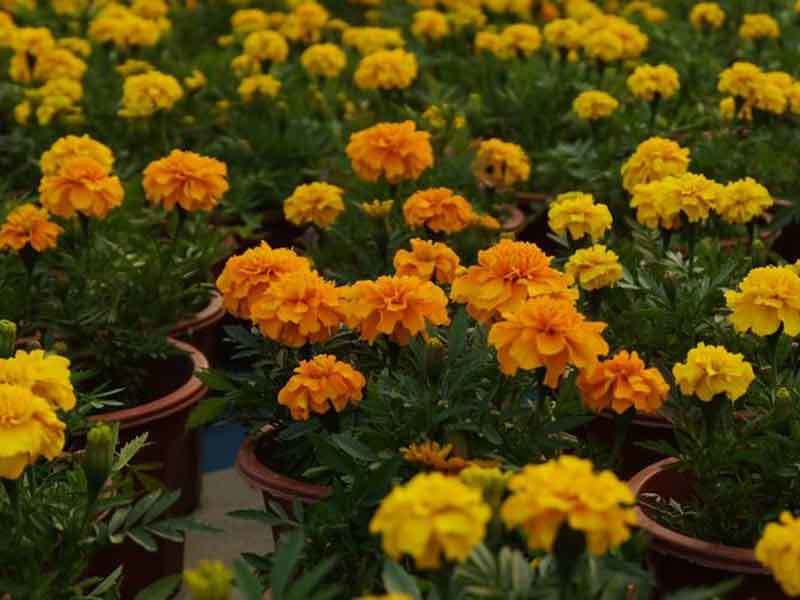Your Ultimate Guide to Leeks Companion Plants - Wilson Garden
Top Companion Plants for Leeks
1. Herbs
Thyme: Thyme is a fantastic companion for leeks. Its low, spreading habit makes it a suitable ground cover that shades the soil, letting leeks' root systems breathe. Thyme's aromatic presence is also a natural pest deterrent. Its pretty flowers attract pollinators, which in turn benefit your leeks.
When planting thyme with leeks, ensure spaces between leeks are at least 6 inches. Both plants appreciate space to grow. Be mindful of overwatering as thyme prefers drier conditions.
Chives: Chives offer leeks both shelter and an underground alliance. Their root exudates can improve soil condition. Chives can also confuse and deter pests. Their delicate purple flowers lure in beneficial insects. When choosing chives as companions, plant them alongside leek rows.
Cilantro: Coriander can pair splendidly in the kitchen with leeks. It also does well when companion planting with leeks. Cilantro repels aphids, spider mites and potato beetles. It also enhances the flavor of leeks when you plant them nearby. However, as an annual that bolts quickly, you must manage cilantro well. Ensure its role as a companion to leeks for the entire season.

2. Vegetables
Carrots: The sweet, orange crunch of carrots isn't the only reason they pair perfectly with leeks. Their underground alliance means they won't be competing for the same nutrients. Carrots' natural sweetness can act as an aphid magnet, diverting the pests away from leeks. Plus, carrot's root exudates can help suppress soil pathogens.
Lettuce: Lettuce can function as a shade-giver which is beneficial. Leek are vulnerable to scorching under the sun, especially during early growth. In addition to protecting from heat stress, lettuce can help retain moisture. Leeks have deep roots and can tap into when needed.

Radishes: Radishes have a knack for multitasking in the garden. They pull double duty next to leeks. Their pungent odor can deter many below-ground pests, including the dreaded leek moth larvae. Their taproots break up the soil. It is easier for leeks to anchor and grow without impediment.

3. Flowers
Marigolds: They are known for their pest-repellent properties. Marigolds can help deter nematodes and other soil-borne pests when planting them among leeks. This protects the leek's delicate root system.

Nasturtiums: Nasturtiums are not just great at the table. They are also fantastic companion plants leeks. Their sprawling nature and bright flowers attract beneficial insects. For example, hoverflies and ladybugs. They prey on pests that may otherwise bother your leeks.
Calendula: It is known as pot marigold. Calendula can improve soil quality and enhance water retention. It's a refreshing sight among your leeks. Calendula also serves as an edible garnish.
Planning Your Leek Companion Garden
Companion Planting Layout for Leeks
Symmetry Versus Functionality: It's aesthetically pleasing to have a symmetrical garden. But it practicality should guide your design. Make sure you can easily access your plants for weeding, watering and harvesting.
Use Natural Landscaping: Consider creating raised beds to separate different plant families. This not only looks attractive but also aids drainage and can prevent some pests.
Spacing, Sunlight, and Plant Compatibility
Intercropping and Succession Planting: Leeks can benefit from being intercropped with faster-growing vegetables. For example, lettuce, carrots or radishes. It maximizes space and can provide shade for the leeks' roots. This keeps the soil cool and moist during hot spells.
Cross-pollination: You can plan a garden with leeks and any members of the Allium family. Ensure they're not going to interfere with the development of the actual leek bulbs.
How to Rotate Companion Plants?
Maintaining a Garden Journal: Keep track of what you plant where and the success or issues you have with different crops in different places. This practice can guide your next year's planting arrangements. Pay attention to any signs of pests or diseases. Early intervention can prevent a problem from spreading.
Additional Tips for Leek Care
Mulching Techniques
You can employ various mulching techniques to retain moisture and suppress weeds. Mulch with straw or leaves several inches deep. Leaving a space around the leeks for air circulation.
Organic Fertilizers
Organic fertilizers are excellent choices for nourishing leeks and their companions. For example, well-composted manure and kelp. These slowly release nutrients into the soil, minimally impacting the delicate balance of the garden.
Pest Management Strategies
The odor of certain herbs and plants like marigolds can act as a natural repellent. They deter pests that might feed on leeks. Conversely, a special area in the garden dedicated to flowers can attract beneficial insects. For example, daisies and cosmos.
Related Article:
growing leeks in pots
square foot gardening leeks




